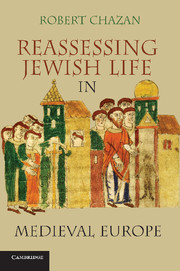Prologue: Group Narratives: Their Tenacity and Their Accuracy
Published online by Cambridge University Press: 05 June 2012
Summary
Human beings require meaningful personal narratives, which may or may not correspond to the realities of the individual’s actual life trajectory. The same is true on the group level as well. Societies of all kinds construct meaningful group narratives that may or may not correspond to the realities of the group’s experience. These narratives constitute coping devices, enabling the group to assimilate its past into a coherent and positive pattern and thus to engage the future constructively and creatively. Once well established, these narratives tend to be resistant to change, because their usefulness convinces group members of their truth.
Group narratives do on occasion break down for some members of society, normally because they are challenged by an alternative and more useful narrative. Two examples we shall encounter regularly in this study are the replacement for many Europeans of the traditional Christian historical narrative by a Greco-Roman–centered narrative highly critical of Christianity and the replacement for many Jews of the nineteenth century, emancipation-oriented Jewish narrative by a nationalist alternative. In both cases, the new narratives enabled those embracing them to pursue alternative objectives and ideals, while asserting the roots of these objectives and ideals in the group past.
- Type
- Chapter
- Information
- Reassessing Jewish Life in Medieval Europe , pp. ix - xxPublisher: Cambridge University PressPrint publication year: 2010



